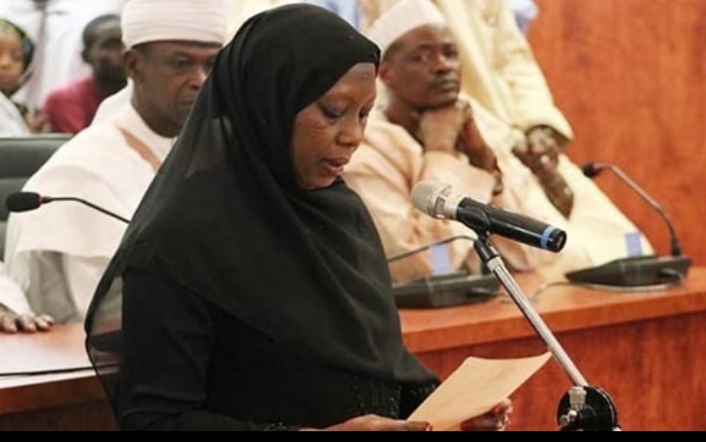Safiya Umar Badamasi, the first Hausa/Fulani Muslim woman to become Senior Advocate of Nigeria, SAN, and first lawyer from Katsina State to attain the exalted bar position has spoken on the feat.
Badamasi is among the 38 lawyers to be conferred with the title in September.
Solicitor-General of the Federation (SGF) and Permanent Secretary, Ministry of Justice, Adedayo Apata, wife of Supreme Court Justice, Mrs. Adedoyin Rhodes-Vivour, human rights activist, Ebun-Olu Adegboruwa, among others were on Friday announced for the title.
The Legal Practitioners Privileges Committee (LPPC) also named Olusegun Jolaawo, Prof Alphonsus Alubo Okoh, Prof Maman Lawan, Prof Uchefula Chukwumaeze, Abdullahi Haruna, Manga Nurudeen and John Asoluka.
Others are Adedokun Makinde, Daniel Enwelum, Emmanuel Oyebanji, Tuduru Ede, Abdul Ajana, Ama Etuwewe, Oladipo Olasope, Leslie Nylander, Olusegun Fowowe, Andrew Hutton, Olukayode Enitan, Paul Harris Ogbole, Olaniyi Olopade, Samuel Agweh, Ayo Asala, Abiodun Olatunji.
In an interview with DAILY NIGERIAN, Mrs Badamasi expressed joy for blazing a new trail in girl-child education in the Muslim North.
Asked about her motivation, she said: “My guidance and counselling teacher was the one who motivated me. I was good in History and Literature in secondary school, so they advised me to study Law.”
Born on June 12, 1968 at Malumfashi town of Katsina State, the erudite lawyer rose through the rank to become the Solicitor General/Permanent Secretary of the Katsina State Ministry of Justice in November 2018.
She began her primary education at Aya Primary School, Funtua and obtained Primary School Leaving Certificate in 1980. She proceeded to FGCC Bakori, Katsina State between 1981 to 1985.
In 1985 she commenced the study of law in the then Kaduna State College of Legal and Islamic Studies, now Hassan Usman Katsina State Polytechnic and obtained a Diploma in Law in 1987.
Before becoming the Solicitor-General, she was Director of Public Prosecution, DPP, Katsina State between 2007 and 2018.
She has to her credit four Supreme Court judgments as well as may Court of Appeal and High Court judgments.


